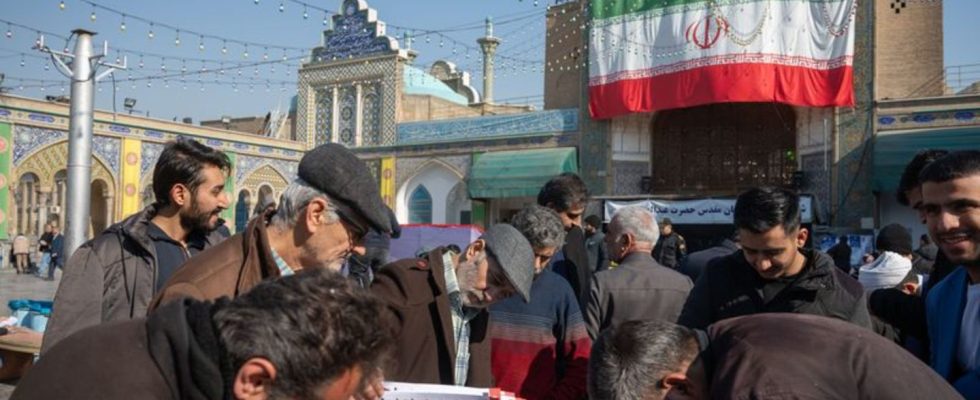Iran
Hardliners lead in elections in Iran’s capital
Around 61 million people in Iran were called on Friday to elect a new parliament and the Council of Experts, an influential body of Islamic clerics. photo
© Arne Bänsch/dpa
As expected, an alliance of ultra-conservative candidates is in the lead in Tehran. However, critical candidates were largely excluded from the elections. And voter turnout was probably historically low.
In the parliamentary election in As expected, Iran is leading an alliance of ultra-conservative candidates in the capital. According to initial results, the “trustee” list, headed by hardliner Hamid Rassai, won 17 of 30 seats in Tehran, state radio reported.
The group is an arch-conservative alliance. The incumbent speaker of parliament, Mohammed Bagher Ghalibaf, who ran for another conservative group, also secured the mandate.
According to the Mehr news agency, voter turnout in Tehran was only 24 percent according to unofficial results. According to initial results, 41 percent of voters nationwide went to the polls – a historically poor turnout. Even in the Shiite pilgrimage city of Qom, Iran’s religious stronghold, voter turnout was only around 50 percent. The numbers cannot be independently verified.
Currency at record low
Meanwhile, Iran’s currency plunged to a record low. In the exchange offices, the unofficial euro rate reached more than 640,000 rials for the first time, as the portal “Bonbast” reported. Over the past decade, the national currency has lost more than 93 percent of its value amid political isolation, international sanctions and an uncertain future.
Around 61 million people were called on Friday to elect a new parliament (Majles) and the Council of Experts, an influential body of Islamic clerics. In Iran, candidates do not enter the race with parties, but rather organize themselves through lists. In Tehran, for example, 30 seats are being elected for the National Assembly, and the alliances are each presenting 30 candidates.
Candidates loyal to the system
The political system of the Islamic Republic has combined theocratic and republican elements since the 1979 revolution. The 290 seats in Parliament are elected by the people every four years. The so-called Guardian Council, an ultra-conservative control body, decides on the ideological suitability of politicians. As a result, citizens can usually only choose from a group of candidates who are loyal to the system.
Numerous critical candidates were excluded before the elections by the so-called Guardian Council. The population is disillusioned by failed reform attempts in recent decades. Many people didn’t want to vote.

